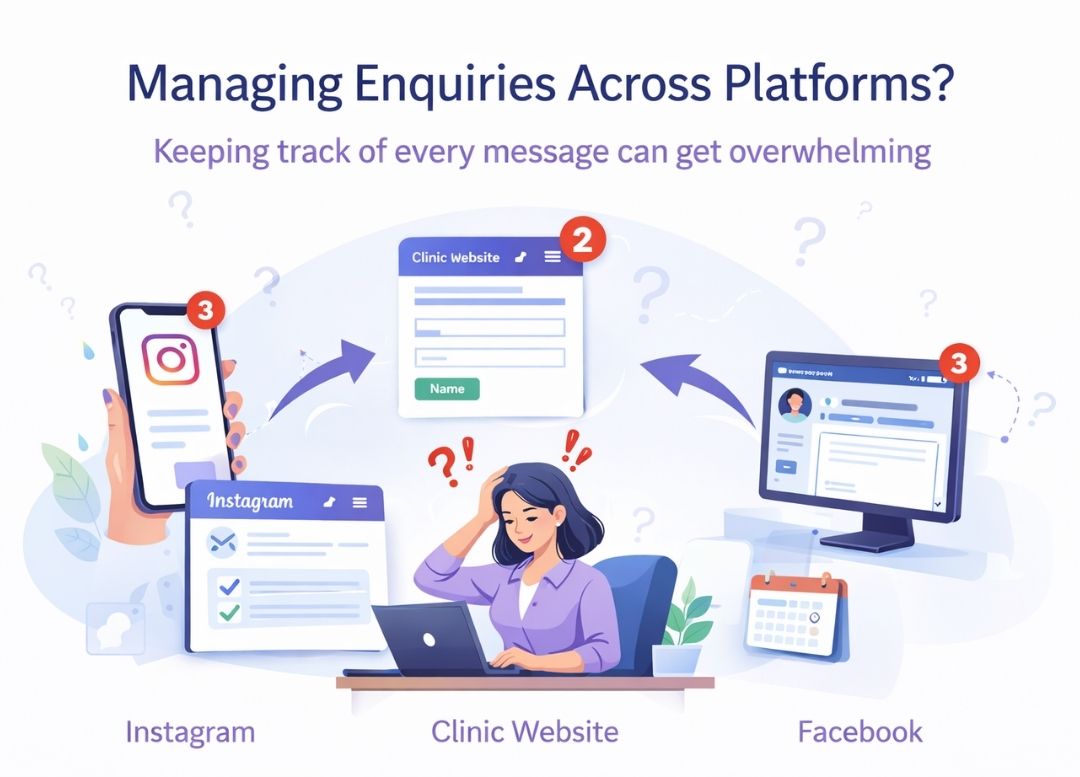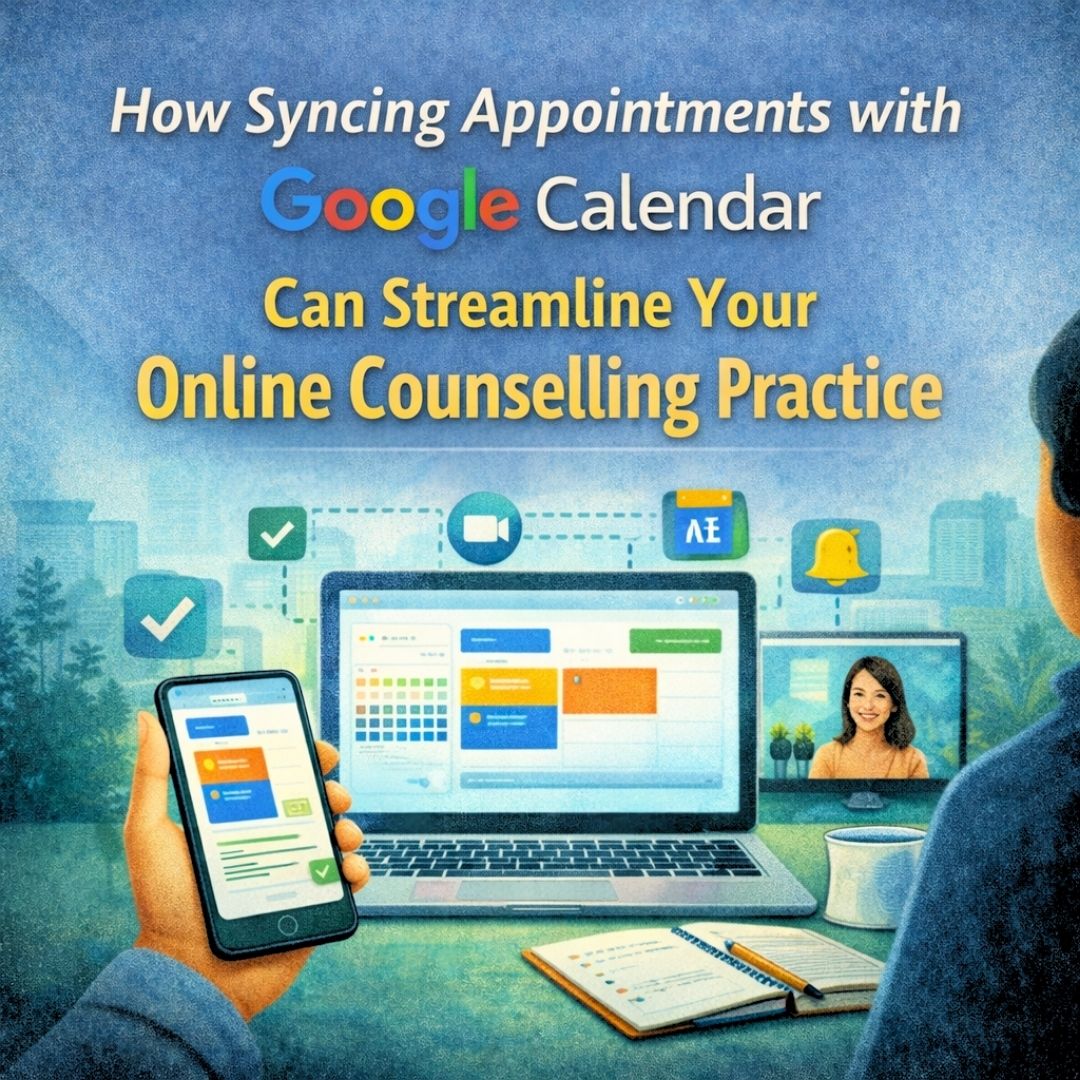Creating a Connection How Your Website Can Reflect Your Counselling Philosophy
This article is not about building a generic therapist website. It's about going deeper, utilizing your website as a canvas to explain your counselling philosophy in a way that appeals to the right people. It is about creating a digital environment that represents your genuineness, expertise, expertise, and true connection.

On this page
Jump to sections
In today's digital world, a website for counsellors is frequently the initial point of contact for new clients. It's more than simply a virtual storefront; it's a digital greeting, a glimpse into the approach you're taking, and a link to creating trust. However, many therapists struggle to convey their distinct ideas and principles on their websites, resulting in generic pages that lack to resonate with or connect with their potential clientele.
This article is not about building a generic therapist website. It's about going deeper, utilizing your website as a canvas to explain your counselling philosophy in a way that appeals to the right people. It is about creating a digital environment that represents your genuineness, expertise, expertise, and true connection.
Why is philosophy indispensable?
Your counselling philosophy is crucial. It guides how you handle mental health issues, the methods you use, and how you connect with your clients. This philosophy should be clearly shown on your website for counsellors. Sharing your beliefs is not just about being open; it's also about drawing in clients who agree with your way of thinking.
Imagine two people looking for therapy online. One finds a website with just basic photos and vague words about helping people grow. The other finds a website that talks about kindness, awareness, and helping clients learn about themselves. It's clear that the second website will attract someone who wants a deeper, more thoughtful approach to mental health.

Weaving Philosophy into Every Aspect:
Establishing a Clear Brand Identity:
Your website should be a reflection of your counseling practice and its fundamental values. Begin by identifying your brand identity, or the distinguishing features that set you apart. Choose a color scheme, font, and imagery that are consistent with your counseling philosophy. For example, if your strategy is based on compassion and understanding, use welcoming hues and soft imagery to create a sense of ease.
Integrating Testimonials and Success Stories:
Client testimonials and success tales on your website can serve as tangible proof of your counseling philosophy's positive influence. Make sure these testimonials reflect the transforming experiences clients have had under your supervision. This social proof can foster trust and convince potential customers that they are in trustworthy hands.
Content that Resonates:
Go beyond the scope of conventional descriptions of services. Create blog posts, articles, or even videos that discuss your areas of expertise and how you aid clients. Share case studies (with permission from the patients, of course) that demonstrate your approach in action. Provide free tools, such as meditations or worksheets, that accord with your ideology.
Implementing User-Friendly Design:
A chaotic or unclear website could discourage users from exploring further. Choose a clean, user-friendly design with easy navigation. Organize material rationally and add clear calls to action so that potential clients can contact you or schedule appointments. Give priority to mobile responsiveness to meet the needs of users across several devices.
Utilizing Imagery Thoughtfully:
Images are really important for showing feelings and setting the scene for your counseling style. Pick images that show the kind of atmosphere you want in your sessions. Using real and varied images can also make clients feel seen and understood, giving them a sense of belonging. Colors and pictures can say a lot. Think about using images that show what you believe in therapy, like peace, understanding, or personal growth. Choose colors that bring out the feelings you want, like calming blues for trust or friendly yellows for openness.
Offering Valuable Resources:
By offering excellent tools on your website, you may demonstrate your dedication to client well-being. This could be blog entries, articles, or downloadable items that reflect your counseling philosophy. By providing useful material, you portray yourself as a competent and supportive resource, which strengthens your connection with your audience.
Engaging in Social Media Integration:
Integrate your social media and website to create a unified online presence. Share content that is consistent with your counseling philosophy, engage in discussions, and interact with your audience. Social media works as a supplement of your website, allowing you to reach a larger audience and demonstrate your expertise. Respond to comments, join important conversations, and share valuable material from other experts in your industry to engage your audience. Social media works as an extension of your website, allowing you to reach a larger audience and highlight the human side of your profession.
Tone of Voice:
Your choice of words is important. Leave the clinical jargon behind and write in language that seems honest and genuine. Use "I" statements to express personal ideas and connect with readers on a more human level. Speak directly with potential clients, acknowledging their problems and anxieties. Consider creating a blog where you can regularly offer ideas, suggestions, and guidance on mental health and well-being. By providing great contents, you not merely contribute to the mental health conversation, but you also increase the perceived value of your website as a source of knowledge that aligns with your counseling philosophy.
Remember that Authenticity is Key
Don't try to be someone you're not. Website for counsellors should show who you really are and how you approach therapy. Share what motivates you, your interests, and maybe even your sense of humor. Letting your true self show will help potential clients get to know the person behind the website.
Examples of Philosophical Connection:
Cognitive-behavioral therapist: Write a blog series about challenging negative thought patterns and developing positive coping skills.
Gestalt therapist: Provide an article that discusses the significance of awareness of the present moment and self-responsibility.
Art therapist: Provide a free, printable coloring page with encouragement for expressing one's emotions.
Beyond the Screen: Making Real Connections
Remember, your website is only the first step. True connection occurs in the therapeutic realm. Leverage your website for attracting the right clientele, then cultivate that relationship with genuine compassion, attentive listening, and individualized care. Allow your website to serve as a beacon of hope and a guiding light for individuals looking for your unique brand of assistance. Make it an expression of your counselling philosophy, values, and true self. In doing so, you will create not only a website, but also a gateway to important connections and long-term therapeutic experiences.
This article is only a starting point. There are numerous ways to incorporate your philosophy into your online identity. So, be creative, real, and let your website actually mirror the therapist that you are and the relationships you want to make.
Conclusion:
Finally, creating a counseling website that genuinely reflects your counseling philosophy is an artistic form that combines visual aesthetics, interesting information, and user-centered design. By deliberately incorporating these aspects, your website becomes a dynamic area that not only communicates but strongly connects with potential clients, laying the groundwork for lasting relationships.
Remember that your website is not a static entity; it is an ever-changing platform that can adapt and expand alongside your practice. Regularly update material, get user input, and stay up to current on recent advancements in web design and mental health awareness. In a profession that values confidence, compassion, and connection, your website serves as a virtual entryway through which people can embark on the transforming journey of counseling, supported by the philosophy that differentiates your practice.
FAQs
Why is a counseling philosophy important for a website?
It guides therapy methods, attracts like-minded clients, and builds trust through shared values.How can branding reflect a counselor’s philosophy?
Use consistent colors, fonts, and imagery that align with your approach, like soothing hues for compassion.What role do testimonials play on a counseling website?
They provide social proof of your philosophy’s impact, boosting client trust and engagement.How can content enhance a counselor’s online presence?
Blogs, case studies, and free resources showcase expertise and connect with clients’ needs.Why is a user-friendly design essential for counselors?
It ensures easy navigation and mobile responsiveness, encouraging clients to explore further.How does social media integration benefit a counseling website?
It extends reach, engages audiences, and highlights the human side of your practice.Where can counselors create a philosophy-driven website?
Explore solutions at LifeHetu.
On this page
Jump to sections
Related Reads. Similar Blogs to Check Out.





